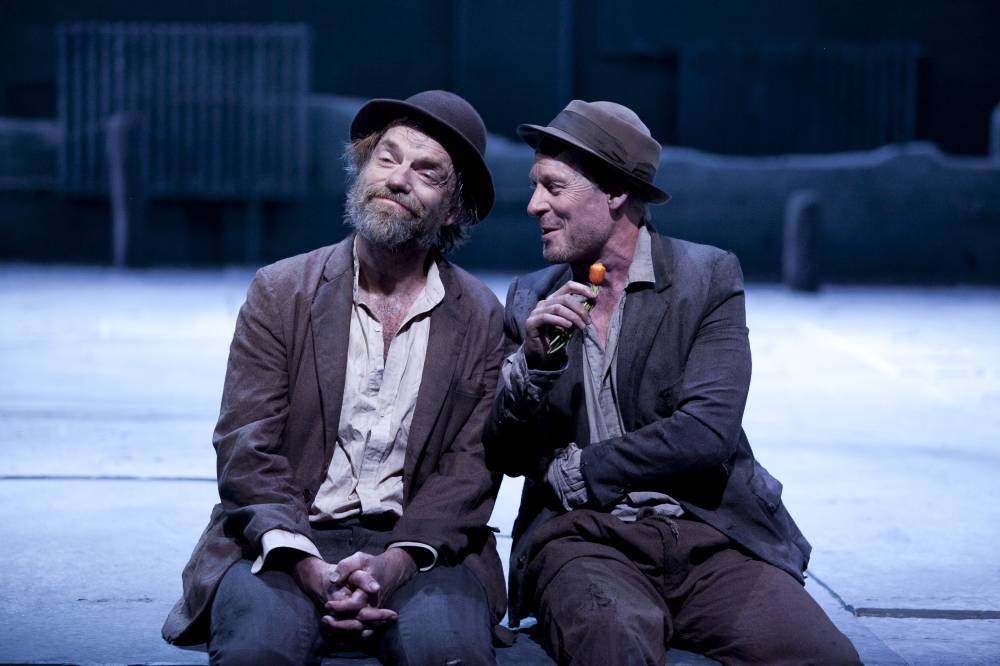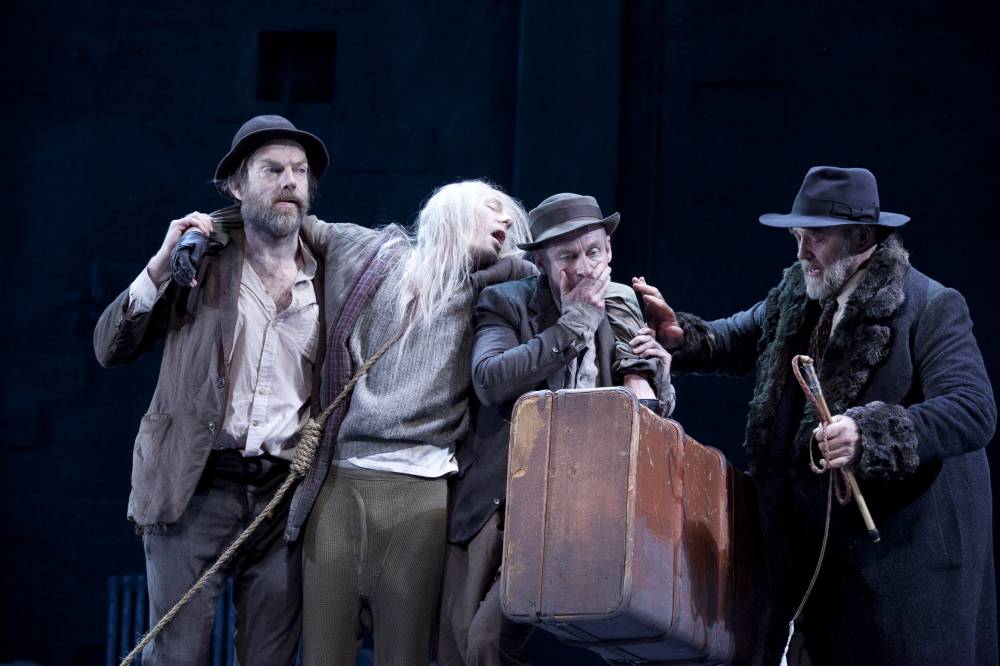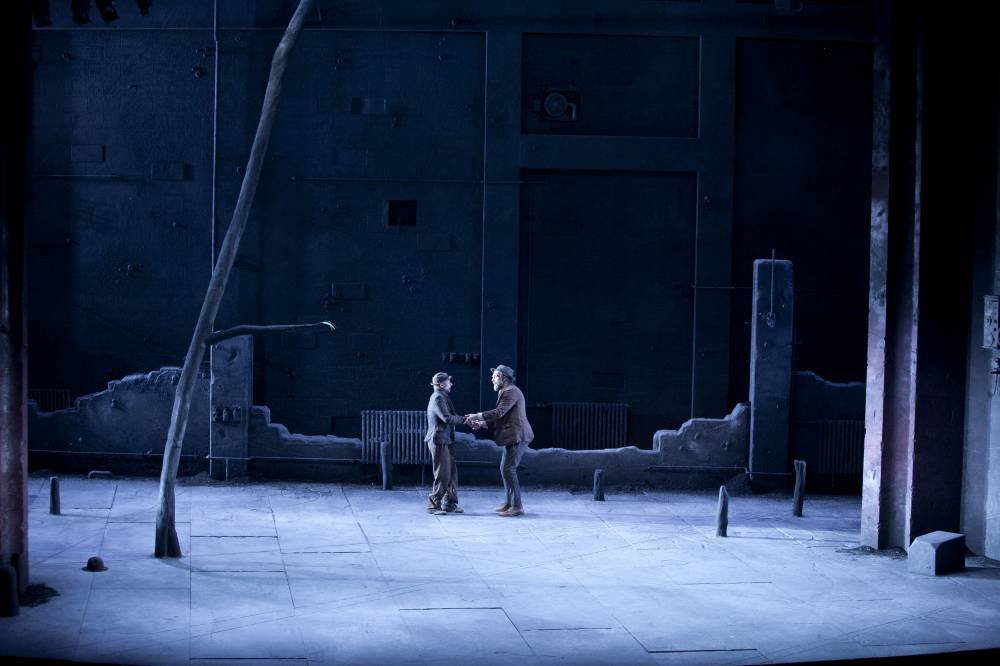Sydney Theatre, November 23

This is not just a good Godot, it is a wonderful one. It quivers with the pathos-laden humour that inhabits Beckett’s every page, but that can be lost or distorted on the stage. Given that the play’s intended director, Tamas Ascher, was prevented from attending rehearsals due a neck injury, Andrew Upton and Tamas’s assistant director Anna Lengyel have done a stunning job of turning adversity into triumph. In the process they have created the Sydney Theatre Company’s finest work of the year.
Beckett’s play certainly shook up twentieth-century drama, but its real place is even grander. It is hard to nominate a greater revolution in theatre since the 1590s, when Shakespeare first took us inside what it is to be human with the creation of Richard II and Juliet, before going on to reach for much nobler heights. Beckett’s revolution, of course, was to create a drama ostensibly without plot or character development; one that drew on the nihilism and desperately black humour that had informed the Dadaists 30 years before, and that clung to many a Picasso canvas.
Beckett also nodded to silent-film comics and vaudeville, and such connections are emphasised in a set by Zsolt Khell that depicts a post-apocalypse theatre, with a dilapidated proscenium arch and ravaged rear wall. Occupying this theatre-within-a-theatre Vladimir and Estragon could well be former theatricals (as well as former grape-pickers and current survivors), although the point is not laboured.
In fact no points are laboured, which is just as it should be. The greatest mistake a director can make is to “interpret” Godot, and impose whatever horrors flow from that.
Upton and Lengyel do not labour the humour, the sadness or the poeticism. Nor have they tried to up the pace “for modern audiences”, as the wretched saying goes. All they have done is layer some hilarious physical comedy into the action, notably in the two sequences involving Pozzo and Lucky.

It was Ascher who suggested using Hugo Weaving as Vladimir and Richard Roxburgh as Estragon, and this was inspired foresight. They bring out all the humanity, warmth and pathos in the two characters, without losing a skerrick of the bleak or bumbling comedy. Their performances highlight the malleability of Beckett’s two tramps. In 1997 I saw a London production with Ben Kingsley as Estragon and Alan Howard as Vladimir in which the latter was the drier character, and Gogo the softer. Here Weaving’s Didi is all care and concern for his comrade, trying valiantly to maintain their spirits, while Roxburgh’s Gogo is flintier, with sudden bursts of wit or warmth, amid the dementia-like lack of memory and the loving zeal to hang himself.
Philip Quast brings his reverberant voice and genuine presence to a bear on a superb realisation of the born-to-rule tyrant Pozzo, and Luke Mullins wins our hearts as the put-upon Lucky, before bending our minds with the torrential, virtuoso monologue that follows Pozzo’s century-defining exhortation to “Think, pig!”. Otis Pavlovic completes the cast as the Boy (sharing the run with Rory Potter).

Alice Babidge gives us the costumes we expect to see, and Nick Schlieper draws no attention to the lighting, other than for the scripted sudden nightfall at each act’s end. The only deviation from Beckett’s intentions, really, is that the moon does not rise each time that night falls. Why not obey that charming direction? Despite that curiosity this is an exceptional production of a true masterpiece, and should not be missed.